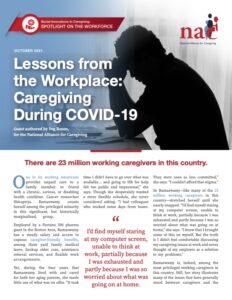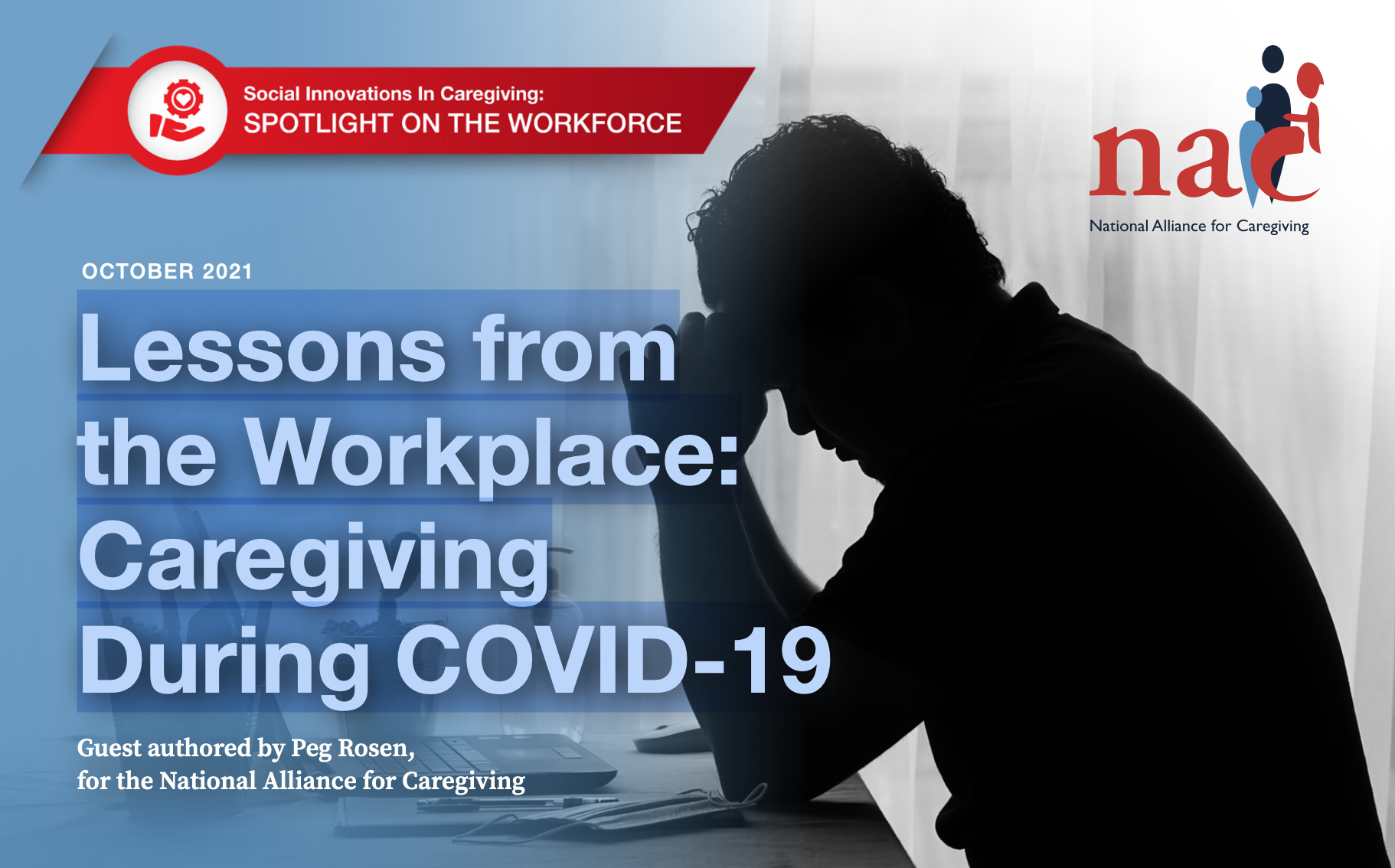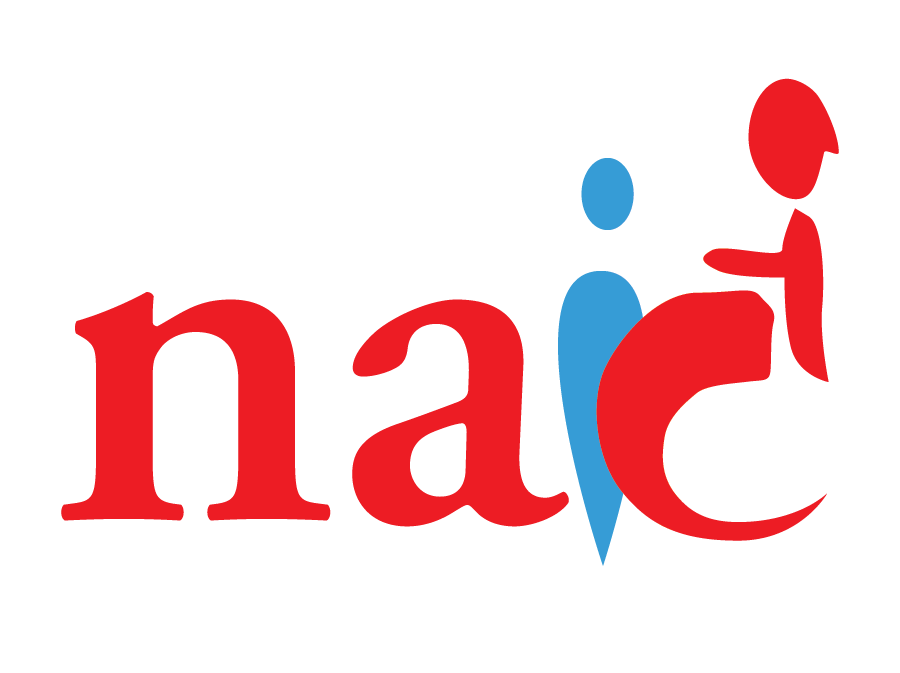 One in six working Americans provides unpaid care to a family member or friend with a chronic, serious, or disabling health condition. Cancer researcher Shivapriya Ramaswamy counts herself among the privileged minority in this significant, but historically marginalized, group.
One in six working Americans provides unpaid care to a family member or friend with a chronic, serious, or disabling health condition. Cancer researcher Shivapriya Ramaswamy counts herself among the privileged minority in this significant, but historically marginalized, group.
Employed by a Fortune 500 pharma giant in the Boston Area, Ramaswamy has a steady salary and access to copious caregiver-friendly benefits, among them paid family medical leave, backup elder care, assistance referral services, and flexible work arrangements.
Yet, during the four years that Ramaswamy lived with and cared for both her aging parents, she made little use of what was on offer. “It took time I didn’t have to go over what was available… and going to HR for help felt too public and impersonal,” she says. Though she desperately wanted a more flexible schedule, she never considered asking. “I had colleagues who worked some days from home.
They were seen as less committed,” she says. “I couldn’t afford that stigma.”
So Ramaswamy—like many of the 23 million working caregivers in this country—stretched herself until she nearly snapped. “I’d find myself staring at my computer screen, unable to think at work, partially because I was exhausted and partly because I was so worried about what was going on at home,” she says. “I know that I brought some of this on myself. But the truth is I didn’t feel comfortable discussing my caregiving issues at work and never thought of my employer as a solution to my problems.”
Read the full article.


